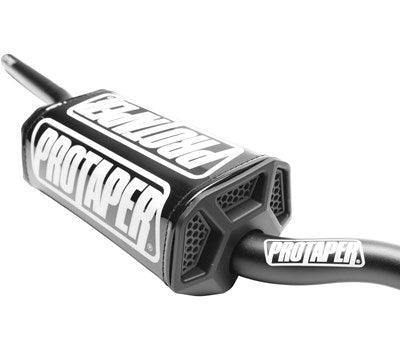Do bike helmets have an expiration date? This is a question you want to ask yourself so you can understand how often you should replace your motorcycle helmet.
Just like everything else, even the best full-face motorcycle helmets in NZ have a lifespan. Even though they’re designed with the best materials for safety and protection, helmets eventually wear out.
In this article, we want to give you a comprehensive answer to why bike helmets expire. We wake a look at why motorcycle helmets expire and what to do to extend their lifespan.
What This Article Covers:
- Factors Affecting the Expiration Date of Bike Helmets
- What About MIPS Helmets? Do They Expire?
- Signs of an Expired Helmet
- Can You Extend the Lifespan of Your Bike Helmet?
Factors Affecting the Expiration Date of Bike Helmets

As we all know, bike helmets aren’t cheap.
In fact, a good quality helmet can cost upwards of $1,000. Therefore, it's no surprise that many bikers want to know how long their helmet is going to last. Unfortunately, there’s no simple answer to this question as there are many factors that affect the expiration date of a bike helmet.
Material
Helmets are typically made from either polystyrene or polycarbonate. Polystyrene is a type of plastic that’s lightweight and affordable, but it’s also not as durable as polycarbonate.
Polycarbonate helmets, on the other hand, are more expensive but they’re also much more durable.
In terms of durability, polycarbonate helmets are the clear winner. However, they come with a hefty price tag. If you're on a budget, then a polystyrene helmet will do just fine if you’re trying to calculate how much to spend on a motorcycle helmet, but you may need to replace them sooner.
Manufacturing Process
The manufacturing process of a helmet can also affect its expiration date. For example, helmets that are injection-moulded are typically much more durable than those that are pressure-formed.
Injection-moulded helmets go through a process where the material that will eventually make the helmet is injected into a mould under high pressure. This results in a helmet that’s much stronger and therefore less likely to break in a crash, increasing your protection.
Pressure-formed helmets, on the other hand, are made by pressing the material into a helmet shape. This results in a helmet that’s not as strong. They tend to be cheaper, but you’re sacrificing money and longevity.
Weather Conditions
Even helmets made to the highest motorcycle helmet standards are affected by extreme weather conditions. The materials that make up your helmet break down when exposed to sunlight, heat, cold, and moisture over time.

This causes the helmet to become brittle and cracked, which means it doesn’t protect your head as well in a crash.
Sweat and Hair Products
Another reason bike helmets expire is because of the sweat and hair products that can build up inside of them over time. The water in your sweat breaks down the components of your helmet, and the chemicals in hair products do the same.
It's important to clean your helmet regularly with soap and water to prevent this from happening.
Paints and Adhesives
Helmets are often made with different types of paints and adhesives. These materials can break down over time, especially when exposed to sunlight or heat. They can also become brittle and cracked, which means they don’t work as well to absorb impact forces.
It's important to inspect your helmet regularly for any signs of damage. If you see any cracks, paint chips or other damage, it's time to replace your helmet.
Exposure to Chemicals
We can’t answer why bike helmets expire without mentioning exposure to chemicals. If you work in an environment where you’re exposed to chemicals such as solvents, gasoline, and bleach, your helmet may be degrading faster than one that isn’t exposed.
The vapours from these chemicals can cause the helmet materials to break down, making them wear down faster. You need to follow the manufacturer’s recommendations for how to clean and care for your helmet, and to avoid exposure to chemicals whenever possible.
Extreme Temperatures
Temperature extremes also cause helmet degradation.
If you store your helmet in a hot car or in direct sunlight, the heat can cause the materials to break down and weaken. Similarly, if you store your helmet in a cold environment such as a garage in winter, the cold can make the materials brittle and more likely to break in a crash since they can’t flex and disperse crash forces as effectively.
What About MIPS Helmets? Do They Expire?

The truth is that just like other bike helmets, MIPS helmets have a limited lifespan. The MIPS (Multi-directional Impact Protection System) is a liner that sits inside the helmet and is designed to reduce rotational forces on the brain in the event of a crash.
While MIPS helmets are better as they offer an additional level of protection, they aren’t indestructible. The materials degrade over time and you need to replace your MIPS helmet just as you would any other type of bike helmet.
Signs of an Expired Helmet
Below are some signs that your helmet has reached the end of its lifespan and needs to be replaced:
The Shell Is Cracked or Damaged
If you can see any cracks or damage to the shell of your helmet, it needs to be replaced immediately. Even a small crack can weaken the helmet and reduce its ability to protect your head in a crash.
The Foam Is Compressed or Crumbling
A compressed foam is one that has been squished or smashed and is no longer able to provide the same level of protection as it did when it was new. Crumbling foam is any foam that’s falling apart or breaking down. If your helmet has either of these issues, it needs to be replaced immediately.
The Straps Are Worn or Frayed
Straps are designed to be strong and durable, but they eventually break down from repeated use. If you can see any fraying or wear on the straps of your helmet, it is time to replace them. It’s important that your straps keep your helmet snug against your head to keep you safe.
You Can’t Remember When You Bought It
If you’re unsure of how old your helmet is, it’s best to err on the side of caution and replace it. Helmets aren’t designed to last forever, and the materials degrade over time.
You should aim to replace your helmet every five to seven years. If you can’t remember how long you’ve owned a particular helmet, odds are that it’s been around for longer than that timeframe.
Can You Extend the Lifespan of Your Bike Helmet?
While you can’t make your bike helmet last forever, there are some things you can do to extend its lifespan.
- Store your helmet in a cool, dry place when you aren’t using it. Avoid exposure to chemicals and extreme temperatures, both of which can cause the materials to degrade.
- Clean your helmet according to the manufacturer’s instructions, and inspect it regularly for any signs of wear or damage.
- Replace your helmet if you see any cracks, damage, or wear that could affect its ability to protect your head in a crash.
- Buy the best helmet such as ONEAL 2021 10 Series Helmet - Carbon Race Light - Black/Hi-Viz (Adult) that assure you of longevity, comfort, flexibility, and safety.
By following these simple tips, you can help extend the life of your bike helmet and ensure that’s there to protect you when you need it most.
Final Thoughts
Don’t assume that your favourite bike helmet will last forever. All helmets have a limited lifespan, and it’s important to replace yours when it reaches the end of their usefulness.
If you can, we recommend that you replace your helmet every three to five years, depending on how often you ride. This ensures that your helmet is always in top condition and ready to protect you in a crash.
If You Enjoyed This Piece, Consider Checking Out Other Blogs:
- Are Expensive Motorcycle Helmets Worth It
- Best and Safest Motorcycle Helmet
- Are Open-Face Motorcycle Helmets Safe
- How to Choose a Motorcycle Helmet?
- Best Motorcycle Helmet Color for Visibility
- Best Hot Weather Motorcycle Helmet
- Best Lightweight Motorcycle Helmet
- Best Motorcycle Track Day Helmet
- Best Motorcycle Helmet for Cafe Racer
- Best Motorcycle Helmet
- Most Advanced Motorcycle Helmets
- Best Dual Sport Motorcycle Helmet
- Best Value Motorcycle Helmet
- Best Motorcycle Helmet for Women
- Best Motocross Helmet Under $300






